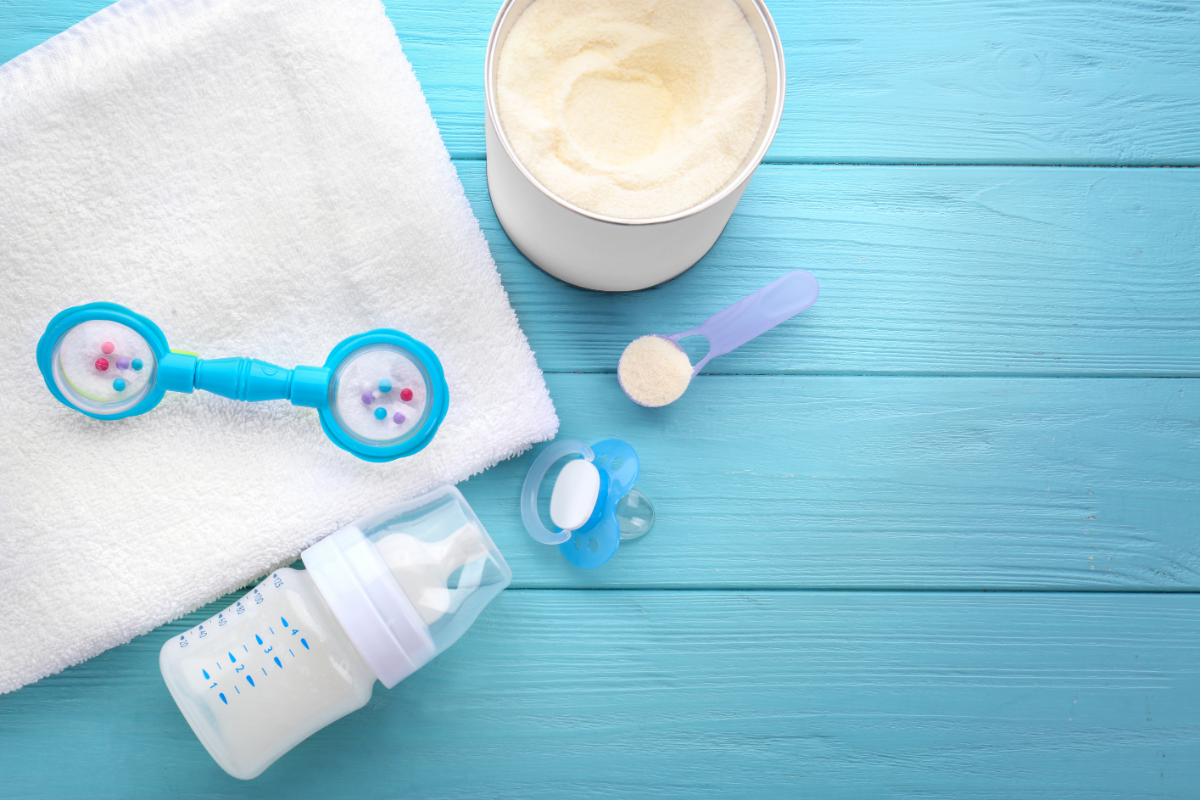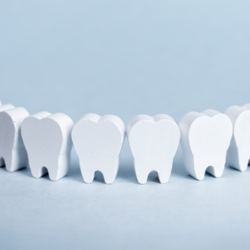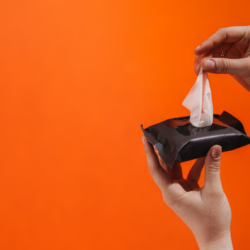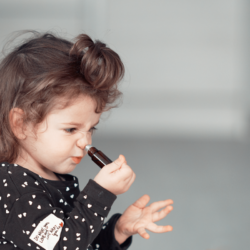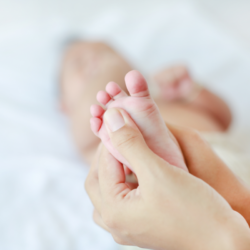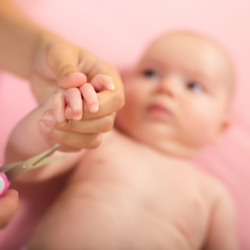Gastro-oesophageal reflux disease (GERD) is the involuntary reflux of stomach contents into a baby’s oesophagus. Common in both babies and adults, it causes regurgitation. Although not serious, it can lead to oesophagitis. Gastro-oesophageal reflux disease (GERD) is common in newborns and infants under the age of one, but is not serious. Regurgitation occurs in almost two-thirds of children aged between 4 and 5 months. It affects only 5% of children aged between 10 and 12 months, when they begin to stand and walk.
The medical definition of GERD in babies is based on the accidental reflux of gastric contents into the oesophagus. This phenomenon, due in part to the immaturity of babies’ digestive systems, mainly manifests itself as regurgitation. Although generally harmless, GERD can sometimes lead to complications such as oesophagitis, an irritation of the oesophagus caused by the acidity of the stomach.
Faced with this clinical picture, homeopathy is emerging as an alternative treatment option, attracting the interest of parents keen to opt for a more natural, less invasive approach. Homeopathy, based on the use of diluted natural substances, aims to stimulate the body’s ability to heal itself. In the case of GERD in babies, it offers a gentle, personalised approach, adapted to the sensitivity and specific needs of the youngest children.
The first step is to recognise the type of gastro-oesophageal reflux disease:
- Simple GERDis the most frequently encountered case and is not serious. It is a benign condition that resolves spontaneously as the baby learns to stand. Regurgitation is well tolerated. Even if the baby regurgitates, his appetite is preserved. He grows well and puts on weight regularly. This type of reflux requires only hygienic and dietary management and generally disappears as the baby learns to walk.
- GERD complicated by oesophagitis: this is much rarer in infants. The acidity of regurgitation causes inflammation of the lining of the oesophagus or oesophagitis.
Annoying symptoms appear: regurgitation with traces of blood, crying, refusal to eat, weight loss, restlessness after bottle-feeding or during sleep, etc. Tests and medical treatment are necessary.
Causes of GERD in infants :
Rejection, gastro-oesophageal reflux and vomiting should not be confused. Rejection is due to too much milk, i.e. a small amount of liquid coming back up into the corner of the mouth after feeding.
Reflux is similar to spit-up but lasts longer, until the next feed, and can be acidic and therefore painful. Two hours after taking the milk, he may still regurgitate. In both cases, this discharge is passive: the contents come up on their own. Vomiting, on the other hand, is active: you have to make an effort to vomit.
How is it diagnosed?
With the help of a PH metry, an outpatient examination carried out in hospital. The doctor slides a very thin tube down the nose into the oesophagus and places a small box on the tube to measure acidity for 24 hours (how often reflux occurs, etc.). A fibroscopy is also prescribed to take samples from the oesophagus. These show the consequences of GERD, i.e. the degree of oesophagitis.
What remedies are recommended for GERD?
For simple GERD
– Keep your baby upright for at least half an hour after feeding; a burp is welcome. The bad idea is to put him back to bed very quickly. Use bibs, nappies, etc. to limit the damage.
– Continue to put your baby down flat on his back. It’s true that reflux diminishes when he’s lying on his stomach. However, the prone position (on the stomach and sloping at 30°) has not been recommended for years. As for the dorsal proclivity position (on the back and sloping downwards), it has never proved effective. What’s more, there’s a risk of the baby rolling off the bed if it’s not properly restrained.
– Don’t pack the nappy too tightly to make it easier for the baby to digest. Things improve a little at the time of dietary diversification, when food becomes solid. But the real improvement comes between 12 and 15 months, when the baby can walk. Standing “straightens” the stomach, the pressure in the abdomen is less… and the digestive system has matured! No more GERD.
In the event of complicated GERD :
We only treat gastro-oesophageal reflux in infants if it is late, acidic, smells like vomit and makes the baby cry. The acidity must not be allowed to irritate the lower oesophagus (creating oesophagitis) or back up into the throat. This can lead to laryngitis, coughing, angina and ENT (ear, nose and throat) complications.
Treatments for baby’s complicated GERD: To reduce acidity in the oesophagus, there are only antisecretory drugs such as Mopral or natural alternatives such as Neobianacib from Aboca. The lesions heal and disappear, but the reflux is still there.
In the case of complicated GERD, the doctor may prescribe a small stomach bandage to be given between feeds.
Breast milk is the ideal, natural food for every baby. If you cannot or have decided not to breastfeed, talk to your doctor so that he can recommend an infant formula for your reflux-prone child.
Homeopathy for reflux and vomiting in babies
To alleviate the unpleasant symptoms of gastro-oesophageal reflux and vomiting in infants, homeopathy offers a gentle, non-invasive alternative. Although every child is unique and may react differently, certain homeopathic remedies have proved effective for many parents. However, these treatments should always be used under the supervision of a healthcare professional.
One frequently recommended homeopathic remedy is Æthusa Cynapium 5 CH. This remedy is particularly indicated for sudden and profuse vomiting in infants, especially when it occurs after the ingestion of milk. This reaction is often a sign of difficulty in digesting lactose. Dissolving 10 granules in a quarter of a bottle of water and administering a teaspoon of this solution before each feeding can help relieve the baby.
What homeopathic medicine should I give my baby for vomiting?
Another homeopathic option is Nux Vomica 9 CH, which is ideal for cases of vomiting that seem to be the result of excessive consumption or difficult digestion. This can be particularly useful in situations where the baby tends to overeat or when there are changes in the composition or quantity of milk.
It is important to note that homeopathy acts in a global and individualised way. As a result, the effectiveness of these remedies may vary from one child to another. What’s more, although homeopathy is renowned for its minimal side effects, it should not replace the advice and treatment prescribed by a paediatrician, especially in cases of severe or persistent GERD.
The baby’s response to treatment should also be closely monitored. If no positive change is observed, or if symptoms worsen, it is essential to consult a doctor.Homeopathy can be an effective complement to traditional treatments, but it should not replace them, especially in cases of potential complications of GERD, such as oesophagitis.
Homeopathic treatment for GERD
Homeopathy can be used to reduce regurgitation and vomiting in infants. Dissolving 10 granules of Æthusa Cynapium 5 CH, particularly indicated for sudden and abundant vomiting that worsens after the ingestion of milk, or Nux Vomica 9 CH, suitable for vomiting following excessive consumption, in a quarter of a bottle of water is one approach. Give a teaspoon of this solution before each feeding.
Ergonomic soother and GERD
The ergonomic soother is often chosen by parents to soothe and calm their baby. However, it is important to note that there is a potential link between the use of ergonomic soothers and gastro-oesophageal reflux disease (GERD ) in babies.
GERD occurs when stomach acid from the stomach backs up into the oesophagus, causing symptoms such as regurgitation, excessive crying and irritability in infants. When babies suck on ergonomic soothers, this can put extra pressure on the stomach, increasing the risk of reflux.
In addition, prolonged sucking on an ergonomic soother can lead to excessive saliva production, which can worsen GERD symptoms. This overproduction of saliva can cause further irritation of the oesophagus, leading to increased regurgitation and discomfort for the baby.
However, it is important to note that every baby reacts differently to the use of ergonomic soothers. Some babies may not experience reflux problems with soothers, while others may be more sensitive.
If your baby suffers from GERD and uses an ergonomic soother, it is advisable to consult your paediatrician. This health professional will be able to assess your baby’s specific situation and provide you with appropriate advice. The paediatrician may recommend reducing or limiting the use of the ergonomic soother in order to relieve the symptoms of GERD.
FAQ
Q1. Does my baby really have gastro-oesophageal reflux?
It is important to consult a healthcare professional for an accurate diagnosis. Common symptoms of GERD include frequent regurgitation, irritability, excessive crying, sleep problems and refusal to eat. If you notice these symptoms in your baby, it is advisable to consult a paediatrician for a thorough examination.
Q2. What causes gastro-oesophageal reflux in babies?
GERD in babies is often due to an immature lower oesophageal sphincter, which does not close properly. This allows stomach acid to flow back into the oesophagus, causing the symptoms of GERD.
Q3. Does my baby need medication to treat gastro-oesophageal reflux?
In many cases, gastro-oesophageal reflux disease in babies resolves itself without the need for medication. However, in severe or persistent cases, a paediatrician may prescribe medication to help reduce the symptoms of GERD.
Q4. When should I see a doctor about my baby’s gastro-oesophageal reflux?
It is advisable to consult a doctor if your baby has severe symptoms of gastro-oesophageal reflux disease, such as weight loss, difficulty breathing, persistent coughing or refusal to eat.
Q5. Are there any natural remedies to relieve my baby’s gastro-oesophageal reflux?
Some simple measures can help relieve the symptoms of GERD in babies. These include raising the head of the cot, frequent feeding with small quantities, maintaining an upright position after meals and using loose, comfortable clothing.
Q6. Will my baby’s gastro-oesophageal reflux disappear over time?
In most cases, gastro-oesophageal reflux disease in babies improves over time as their digestive system develops and strengthens. Most babies outgrow GERD by the age of 12 to 18 months.
Conclusion
Caring for a baby with gastro-oesophageal reflux disease can be a difficult task, but by following the right advice you can help relieve symptoms and improve your baby’s comfort. Raising the head of the cot, regulating the frequency and volume of feedings, vertical feeding and regular burping are simple measures that can make a significant difference. Don’t forget to consult a healthcare professional for an accurate diagnosis and personalised advice. With patience and care, you can help your baby overcome gastro-oesophageal reflux and regain his or her well-being.

